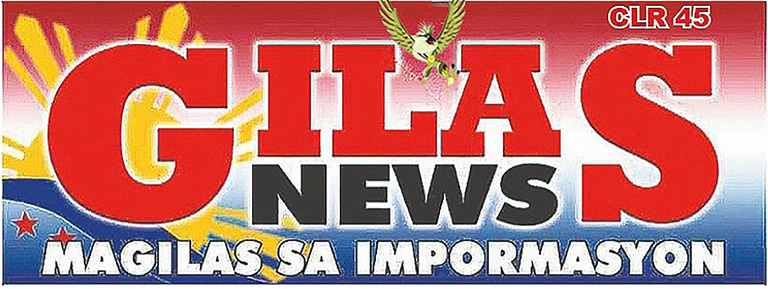IN GOD WE TRUST
Sen.Bong Go: Institutionalize PNG as centerpiece of grassroots sports development
SENATOR Christopher “Bong” Go filed Senate Bill No. 413 at the start of the 20th Congress, reiterating a proposal he also filed in the previous Congress, seeking to institutionalize the Philippine National Games (PNG) and establish it as a premier national platform to discover, develop, and support Filipino athletic talent, particularly from the grassroots.
SPORTS
by Danny Simon
7/19/20253 min read
SENATOR Christopher “Bong” Go filed Senate Bill No. 413 at the start of the 20th Congress, reiterating a proposal he also filed in the previous Congress, seeking to institutionalize the Philippine National Games (PNG) and establish it as a premier national platform to discover, develop, and support Filipino athletic talent, particularly from the grassroots.
Framing the measure as a response to the constitutional mandate for sports development, Go explained that the bill is anchored on the need to revive and sustain a national grassroots sports program, long hampered by lack of resources and policy continuity.
He cited historical precedent for the PNG, noting that “in the government’s pursuit to execute the constitutional mandate on sports development, former President Fidel Ramos issued Executive Order 163 in 1994 which declared the Philippine National Games as the centerpiece program of the government’s national physical fitness and sports development effort.”
However, Go lamented that “the perennial lack of funding in grassroots sports development including the conduct of Philippine National Games, serves as an impediment for us to achieve the objectives of the Executive Order.”
The PNG bill was approved by both Houses in the 19th Congress but failed to get the nod of the President. With this, Go clarified a key distinction, dispelling misconceptions that PNG duplicates existing programs.
“It is just right to reiterate that the Philippine National Games is not a duplication of the Palarong Pambansa since the latter is a school sports program of the Department of Education (DepEd) for students generally 18 years old and below. Meanwhile, the Philippine National Games is a grassroots competition program of the Philippine Sports Commission for athletes 18 years old and above representing local government units (LGUs).”
According to Go, the PNG would not only serve as the “primary recruitment platform of the National Sports Associations (NSAs) in identifying athlete-members of the National Training Pool” but would also create opportunities for participation by “out-of-school youth and elite adult athletes.”
He explained that the bill aims to “provide a structure for a truly integrated and comprehensive national sports program, linking grassroots sports promotion to elite sports development, and encourage all local governments to promote the development of sports in the countryside covering all barangays, towns, municipalities, cities, and provinces.”
“The PNG will also harness the vast potentials of Filipinos in discovering and developing potential athletes in various sports who could form part of our national pool of athletes and excel in international sports competitions,” Go added.
Moreover, the senator underscored the importance of coordination between local governments and NSAs, explaining that the bill “encourages and assists various NSAs in promoting their respective sports at the grassroots level providing the necessary linkages with LGUs.”
Go asserted that institutionalizing the PNG will ultimately uplift Filipino athletes and enhance the country’s performance in international arenas.
“The passage of this bill will pave the way for improving our sports development programs and other initiatives that will promote the welfare of our Filipino athletes to further elevate our status in the sporting world,” he concluded in his explanatory note.
Under the bill, the PNG is envisioned as an inclusive, biennial national competition, with athletes including those who are specially abled, participating through provincial and city delegations.
It formalizes a structure where LGUs, through their Physical Fitness and Sports Development Councils, are tasked to encourage, recruit, train, and select athletes who will compete in a wide array of sports disciplines aligned with the international competitions where the Philippines regularly participates, including the Southeast Asian Games, Asian Games, and Olympics.
The bill also proposes the creation of the Philippine National Games Board, a policy-making and coordinating body composed of representatives from key agencies and organizations such as the Philippine Sports Commission, Department of the Interior and Local Government, Department of Education, Commission on Higher Education, Philippine Olympic Committee, Philippine Paralympic Committee, and leagues representing provinces, cities, municipalities, barangays, and the private education sector.
Through this structure, Go aims to establish not only an integrated sports development system but a “mini-olympics” that can provide incentives and recognition to outstanding athletes and participating LGUs, ensure security and logistical coordination for events, and promote nationwide engagement in sports as a tool for holistic national development.
Address:
Raedang International Builder and Developer, Inc.
#81 Andamiro Bldg. A. Santos Ave., Sucat, Parañaque City
To God Be the Glory
since 2023
Editor-In-Chief: Danny Simon
Editor: Enjel Manato ---enjel64@gmail.com
